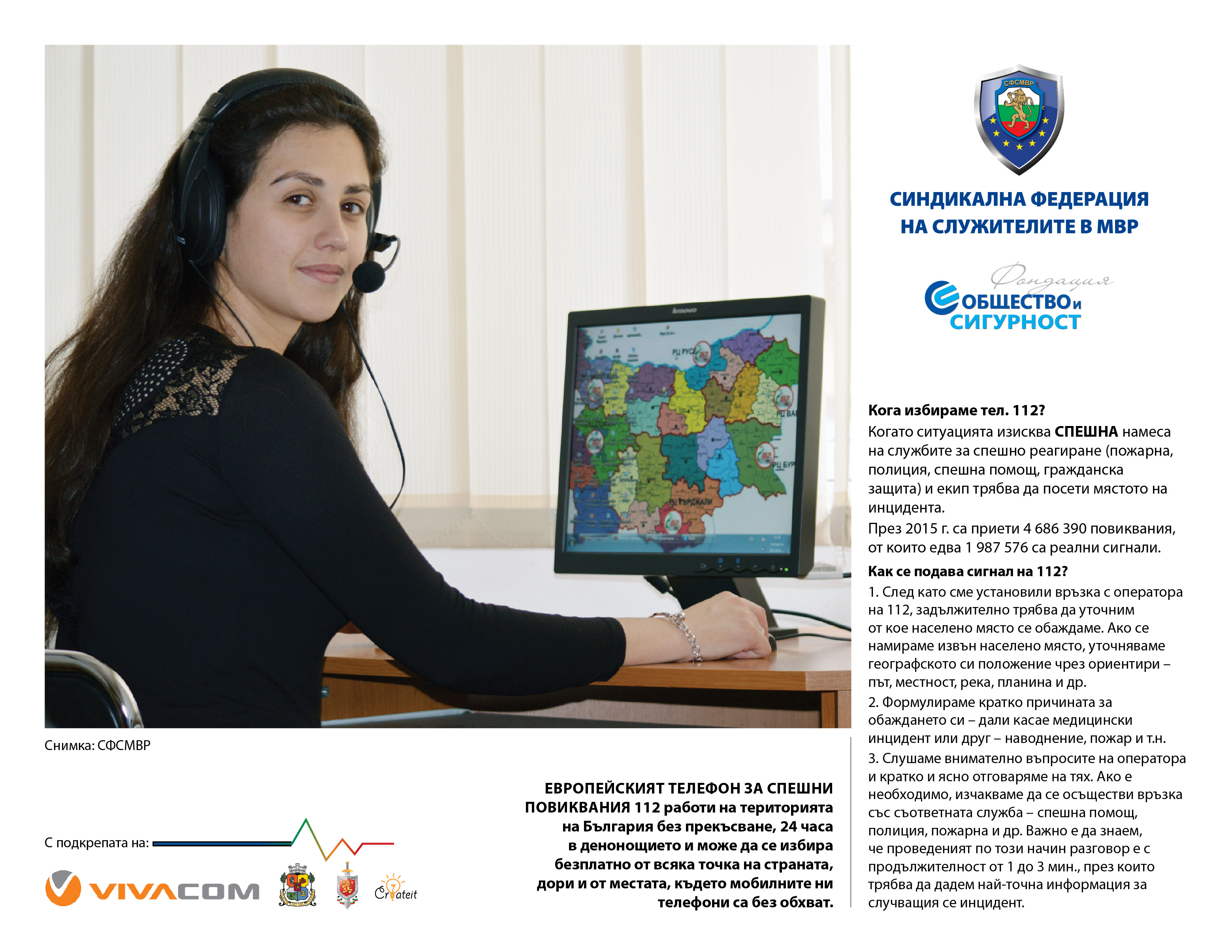- 01.09.2016
When we have to call on 112?
When we are calling on 112? When the situation requires URGENT intervention of the emergency services (fire brigade, police, emergency, civil protection) and a team have to be sent at…
Read Още- 18.05.2016
The duty, which…
His name is Stoyan and he lives in Konstantinovo. The flood on 16 May 2016 found him with a shopping bag and on the way back home. He saw that…
Read Още- 01.04.2016
There are days…
Each day is different. There are days I’d been shouted. Days when people fainted in my arms. Days when my stripes had been torn and people spat in my face.…
Read Още- 15.02.2016
Let’s talk about Ministry of Interior by facts
In 2015, 3168 people have left the Ministry of Interior. More than 2/3 of them are working at field and are at operational positions. From all employees quit the system…
Read Още- 25.12.2015
The person behind the uniform: Ivo
In the first part of the series “The person behind the uniform” we are introducing you Ivo – a firefighter in Varna, beloved husband and father. The series will meet…
Read Още- 13.02.2015
How do we see the participation of civil and professional organizations in Ministry of Interior’s reforming?
The most important element of the whole process is institutionalized of forms and procedures for citizen participation in reforming the Ministry of Interior. The second crucial component is uniting around…
Read Още- 03.02.2015
The failed reform!
Ministry of Interior is the only unreformed Ministry in Bulgaria, but also one of the ministries in which structural changes are the most numerous. One of the major structural changes…
Read Още- 03.02.2015
Why it is necessary and important in the whole process of reforming trade unions to participate?
Reforms that are realized at the time, as mentioned, are parceled and ineffective. Reforms in the Ministry of Interior needs to be long-term, have consulted with civil and professional organizations,…
Read Още
